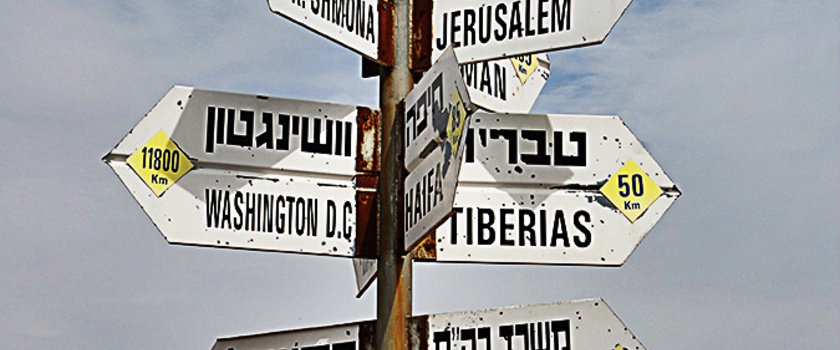Christ – Our Servant-Lord
24. August 2014
 „Ihr aber, für wen haltet ihr mich?” – Jesu Frage und die Antwort der Jünger wird im heutigen Grenzgebiet zwischen Israel, dem Libanon und Syrien verortet: Grenzen und Richtungen.
„Ihr aber, für wen haltet ihr mich?” – Jesu Frage und die Antwort der Jünger wird im heutigen Grenzgebiet zwischen Israel, dem Libanon und Syrien verortet: Grenzen und Richtungen.
Homily by Abbot Gregoey for 21st Sunday of Year A, 2014, given in Tabgha
In today’s first reading God promised to appoint his servant Eljakim as father and leader to the people of Jerusalem and the House of Judah. He would place on Eljakim’s shoulders the Key of the House of David: what he would open no one could close and what he would close no one open again.
But the gospel presents us with another servant of God to whom similar keys were promised: Simon Peter, the rock on which Christ would build his Church. The power promised to Peter was even more awesome. What he would bind and loose on earth would also be bound and loosed in heaven! This has become a proof text in the Roman Catholic Church for the Pope’s primacy and (occasional) infallibility, as Peter’s successor. Peter received this power because he confessed Christ’s true identity. By revelation the Father prepared him for his ministry by allowing him to recognize Jesus as Messiah and Son of God.
Yet Jesus admonished his disciples to tell no one that he was the Messiah. A public announcement would have aroused false hopes that he might bring in the reign of God through violent conflict. But that was not his way: the kingdom would come not through human might but through the mighty act of God. By raising his crucified son from death God set him over a kingdom of mercy, love and forgiveness. So, despite the dramatic promises to Peter, and later to the other apostles, the Church is not sent to proclaim its own importance. Rather, the Church’s task is to point to Christ the Servant-Lord, the only legitimate source of spiritual authority, who governs through the power of love.
Christian leaders, in succession to the apostles, do indeed hold the keys of the kingdom: but they bear them, they do not possess them! For all who exercise authority in the Church, priests and bishops, priors (prioresses) and abbots, patriarchs and popes, there is no more fruitful exercise than for five minutes each day to contemplate the crucifix; except perhaps to consider another image, that of Peter the “Prince of the Apostles” – who was given such awesome power - naked, upside down and nailed to a cross. That is the best “reality check” we could ever wish for against ecclesiastical triumphalism and spiritual inflation.